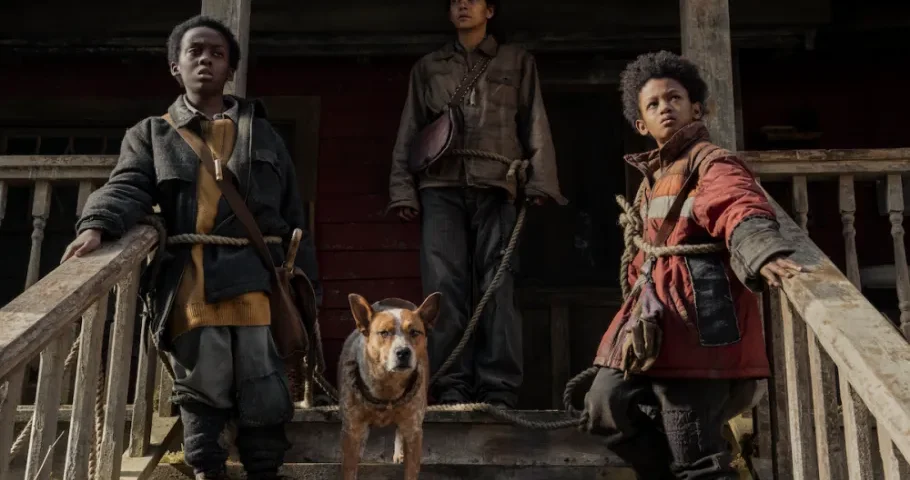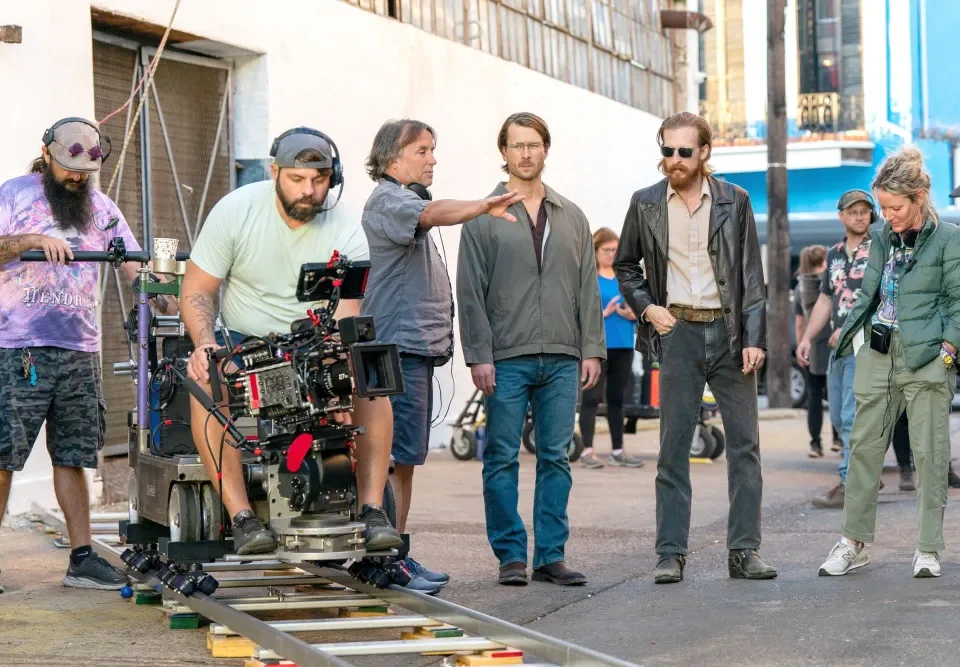
Pamela Anderson to Receive Golden Eye Award at Zurich Film Festival
09/17/2024
The Count of Monte Cristo’ Sets December Release After Making France’s Oscar Shortlist, Plans to Campaign in All Categories (EXCLUSIVE)
09/18/2024According To The variety Never Let Go” isn’t interested in reinventing familiar formulas when it comes to its unsettling spin on sinister spirits visiting a secluded cabin in the woods. With its inclusion of a protective mother and her two young kids attempting to escape an evil entity plaguing their world, it’s also unafraid to invite minor comparisons to “Bird Box.” Still, director Alexandre Aja’s psychologically taut feature blazes its own trail, dropping us into the middle of one family’s ghastly, worsening crisis, craftily drawing its scares from their interpersonal and intrapersonal strife. Though not all of its clever ideas come together efficiently in the finale, its thematic ruminations on grief, sanity, rebellion and redemption are intrinsically intertwined to harrowing, claustrophobic effect, heightening the hallucinatory horrors and dread-soaked atmospheric pull. Momma (Halle Berry) has kept her young fraternal twins Samuel (Anthony B. Jenkins) and Nolan (Percy Daggs IV) hidden away in her parents’ remote, rustic cabin in the overgrown wilderness. The tall timber that surrounds the property acts as a cage, keeping the trio cloistered within the confines of its bark and branches. But instead of imprisoning them, it’s actually keeping the terrors of society away. According to Momma, the world around them has been infected with evil, and dastardly demons are lying in wait, looking to possess their pure hearts once they venture off their porch steps. The trio must tether themselves to the home with a long, thick rope whenever they leave and, upon their return, perform a series of daily rituals — like praying while touching an ornamental door in the floor and meditating within the small storage space below — to keep their off-the-grid sanctuary mystically functioning.
Alas, this tight-knit family’s hermetic existence begins to crack after a treacherous trip outdoors to gather sustenance leads Samuel to unwittingly slip off-leash and break an ankle, while Nolan drops the cable to rescue his brother. Momma, of course, swoops in to save the pair from a sinister snake-tongued devil disguised as her dead mom (Kathryn Kirkpatrick), who taunts but cannot touch her. However, only Momma sees this menacing vision, causing Nolan to question the monsters she keeps warning them about in her grim bedtime stories, which typically keep them docile. He suspects his mom might be doing more harm than good. While Nolan tries to sell Samuel on challenging Momma’s authority, their food supply dwindles thanks to harsh environmental changes. And right as their situation reaches its most dire hour, a shift in the brothers’ relationship occurs, weakening their strong bond.
As demonstrated in Aja’s previous films, ranging from “High Tension” to his “The Hills Have Eyes” remake, the French genre director’s strength lies in stories dealing with ordinary people trapped in seemingly insurmountable, nightmarish experiences. Each is told with brevity in mind, streamlining the narrative’s pacing and twists. The same can be said of the way Aja fearlessly explores similarly bleak mounting circumstances in “Never Let Go,” sensing how to tap into the shared universal fears of both the characters and the audience rooting for their survival.
Aja and screenwriters KC Coughlin and Ryan Grassby deliver lean, mean and cleanly constructed scenarios for their problem-plagued protagonists, ratcheting up both suspense and empathy. We genuinely care about their conundrums and simmering conflicts, anticipating the dismal day their resources run out — shown through a time-lapse montage, as their pantry and greenhouse are ravaged by time. Editor Elliot Greenberg’s cuts, composer Rob’s discordant synth-heavy score and DP Maxime Alexandre’s cool-hued lighting prime us for calamity.
Things escalate when a starving Samuel and Nolan are confronted with a tense fight-or-flight catalyst involving the family dog. This is also where Jenkins and Daggs’ work radiates. A lot of responsibility is placed on their tiny shoulders to carry the film with the naturalism and introspection they bring to the material. The young actors deliver heartbreaking vulnerability and nuanced, compelling performances.
The film’s frights aren’t limited to cheap jump scares caused by creepy creatures, although those are unfortunately present. Rather, the more gutting aspects come back to how the insidiousness of evil works to split apart this happy, loving family. It causes doubt, dissent and deception, leading to visceral, heated arguments and hellacious outcomes. There’s hefty resonance to the push-pull of the main conflict between Momma, who desperately wants to protect her sons from evil she’s witnessed, and her boys, whose split convictions are put to the test in the third act. Berry brilliantly humanizes and grounds this flawed mother figure, bestowing her with wit, wisdom and a rich internality. From a lesser actor, Momma’s cruel punishments would come across as campy. But in Berry’s hands, this woman’s blunt stoicism is cloaking deep pain and, possibly, a struggle with mental illness. Her actions, scars and sick tattoos provide unspoken clues about Momma’s upbringing, rebellion and penance.
From the outset of our journey to the final seconds before the end credits, we’re continually guessing whether these monsters are real or malevolent manifestations brought on by cabin fever. It feels intended to encourage debate, since there really are horrendous evils in the world. However, if there’s anything this fantastical campfire tale lacks, it’s a smart, satiating ending. It’s probably the only time “Never Let Go” loses its grip on us.




